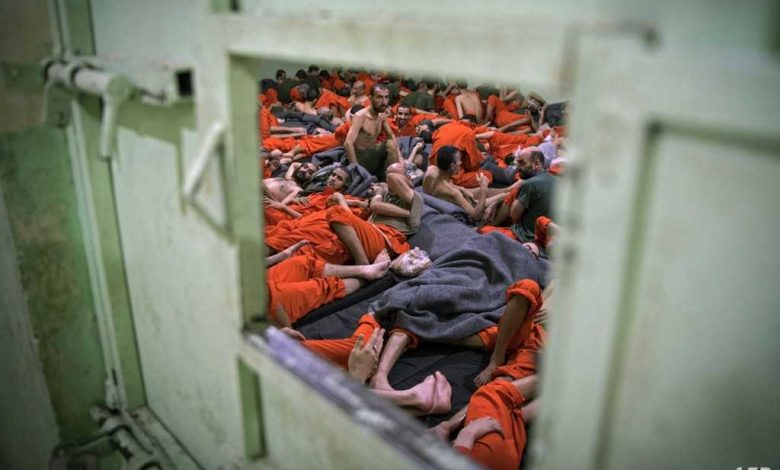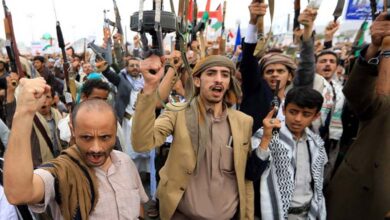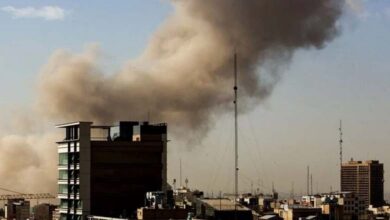After the events of Geweran prison and the operations of ISIS in Iraq… Where does the organization get their money?

The resumption of attacks and long-term actions, such as the attack on Geweran prison in the Syrian city of al-Hasakah, raises serious concerns about the possible return of ISIS three years after its territorial defeat in 2019.
According to a report by Italian news agency NOVA on Friday, there has been a dramatic increase in the number of attacks carried out by the terrorist group in recent weeks, as well as in the scale of attacks in the Middle East and North Africa, where ISIS-affiliated fighters killed three Libyan security personnel in the southern region of Fezzan.
The most advanced operation was the one carried out almost simultaneously last January 20th against the Iraqi Army’s military barracks in Diyala province, and the Al-Sina’ah Prison located in the Ghwairan district of Al-Hasakah in northern Syria. The prison is run by the Kurdish-Arab forces, the Syrian Democratic Forces, with support from the United States.
Al-Arabiya highlights the same story, noting that the group’s return to momentum, despite the official US announcement of its elimination in 2019, raises many questions about its funding sources for re-launching attacks, and the recruitment of new young people. Funding is the main element on which it has relied, and continues to rely, through oil and smuggling networks and other sources. Former German Federal Prosecutor Christian Richter, who heads the UN team investigating ISIS crimes, emphasized the importance of investigating ISIS-related funding issues, noting that this reveals the organization from the top down.
He stressed that tracking sources of funding and money would determine the structure of the organization, in which case beneficiaries could ultimately be identified.
Smuggling
On Friday, the Syrian Democratic Forces revealed the existence of smuggling networks in Turkish-controlled areas in northern Syria. It revealed that one of these militias that allegedly supports ISIS activities is the Abu Qaqa faction, noting that it facilitates the smuggling of people to Turkey and uses the money to finance the group’s operations.
In addition to smuggling operations, the group in Iraq relies on charging citizens with fees to raise money to finance its terrorist operations, according to the security media cell.
The cell recently announced the arrest of a cell that collected money for the group in western Ninawa, where four detainees confessed to threatening and terrorizing citizens and taking money from them by force.
Selling antiquities and kidnapping
Treasury Department experts said: “The sources of funding for ISIS at present come from criminal activities, including kidnapping, drug smuggling in the region, as well as human smuggling to Europe, in addition to smuggling and selling looted Iraqi and Syrian antiquities”.
It is noteworthy that the sources of his financing did not depend on these criminal activities, as he apparently entered the market of cryptocurrencies in order to avoid international prosecution, and also to find a new field for the transfer and laundering of funds.
The experts said: ISIS has introduced an informal system for transferring money to personal contacts, such as Western Union, the leading money-sending system anywhere in the world, according to a report by the German channel Deutsche Welle.
Billion dollars
During the organization’s peak in 2014, experts estimated its assets at more than $2 billion. The Center for International Security and Cooperation at Stanford University, California, concluded that “the funds confiscated by the organization in areas under its control, in addition to sales of natural resources and money obtained through taxation and criminal activities, made it the richest terrorist organization in the world”.
It did not end after the group’s fall in 2017, with the US government estimating late last year that IS may still have assets worth as much as $300 million.
The Rewards for Justice program of the U.S. Treasury Department has placed a reward of up to $5 million for information leading to the discovery of oil and antiquities sales and/or trade by, on behalf of, or for ISIS in Iraq and Syria.











